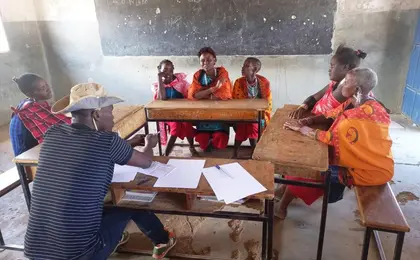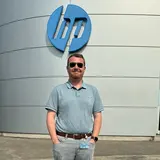Internship Spotlight: Roshni Walia ’23, Metis Collective
Roshni Walia ’23 shares lessons from her summer internship with Metis Collective in Kenya.
What did you do this summer? In this series, Laurie Toth asks rising second-year MBA students to check in from their summer internships, where they applied the lessons of their first year at Yale SOM.

Roshni Walia ’23
Internship: Metis Collective, Kenya
Hometown: Nairobi, Kenya
Pronouns: she/her/hers
Clubs and affiliations: Second-year leader, Education Club; second-year leader, Africa Business & Society Club
Favorite SOM class: State and Society
Favorite SOM professor: Lesley Meng
Favorite New Haven eatery: September in Bangkok
Favorite thing you do in New Haven or at SOM to unwind: Hosting intimate wine nights with friends and meaningful conversation.
Favorite Yale study space: My desk at my apartment.
Bonus facts: I’m an avid reader and have read 466 books (and counting) since January 2020.
I have been interested in potential for a long time. A question I constantly ask myself is “How do I help leaders and organizations unblock, unlock, and amplify their potential and capacity for success?” Education is a key part of this potential equation, and I decided to spend my internship exploring this field further. Having never worked in education before, I relied heavily on my network to speak to me about their experiences, and give me advice on how best to approach my search. One of these informational chats was with Rebecca Crook, the executive director of Metis, an education nonprofit based in Kenya. By the time she finished telling me what Metis did, I was hooked and knew I wanted to be part of the Collective (as we call our community of core team, fellows, alumni, friends, and supporters). I asked whether she’d be willing to take on an intern, and was delighted when she said yes!
SOM support was instrumental in helping me succeed at this internship. I was one of the beneficiaries of the Internship Fund, which allowed me to work at a nonprofit for the winter. As I was networking in the education ecosystem, I found SOM (and broader Yale) alumni incredibly generous, both with their time and advice. Drawing on the school’s dual focus on business and society, I was able to situate the work Metis is doing within the broader Kenyan context.
Part of the work I did involved recommending systems and process improvements, for example, for our People, Finance, and Programs functions. The SOM core curriculum came in very handy here—I used a framework we learned in Workforce, taught by Professors Amy Wrzniewski and James Baron, to guide Metis in developing and implementing core strategic success factors and grounding our HR processes in these factors. I also advised team members on implementing these improvements and used my background as an executive coach to coach managers on our team to strengthen their leadership skills—skills that I’ve gotten to strengthen during my time at Yale by serving as a career advisor for the Jackson School of Global Affairs.
The connection between Yale and the work I did at Metis didn’t stop there—it was easy for me to build on my learnings at the internship by signing up for relevant electives at SOM and beyond. For example, this semester, I’m taking Strategic Management of Nonprofit Organizations at SOM and Catalyzing Private Sector Investment at Jackson, both of which I believe will be instrumental in helping me strengthen the work of Metis and other such organizations when I return to Kenya.

The majority of the work I focused on was creating the Metis “North Star,” a community created vision and rubric for student learning outcomes that involved conversations with approximately 120 caregivers, learners, educators, and policy makers. The main question we wanted to answer was: What skills and mindsets do Kenyan learners need to thrive in the 21st century—and who gets to answer this question?
In Kenya, 80% of class 3 students can’t do class 2 work. It takes the average Kenyan graduate five years to get a job, and this doesn’t necessarily translate to a fulfilled and happy life. Education in Kenya needs to be reimagined, which will take more effort to address than what any one player can do alone. The country has the potential to be a model for successful education reform. There are bright spots of possibility across individual innovators, but a lack of infrastructure to connect them and systematize their innovations. There is no way for these educators to learn from each other and accelerate the pace at which all children in Kenya can access a high-quality education.
Metis aims to create conditions for systemic change to create a world where all learners thrive. Its core program is a fellowship that takes Kenyan leaders who have visions for reinventing education and supports them through a six-month fellowship where they design, test, and implement their education innovation. This fellowship aims to connect, equip, and amplify the work of proximate leaders, grounded in the belief that those closest to the problem are those closest to the solution.
At Metis, the focus to date has been on fellows and the growth of their leadership and ventures. Grounded in the belief that collective leadership is an essential lever for improving learning outcomes for students, and using a design-thinking inspired approach, I led the process for co-creating a vision for these learning outcomes, situating it within our local context, and thinking about how to orient individual efforts toward shared outcomes.
The outcomes of this process were a set of internal skills and mindsets that answer the question above and are supplemented by external factors that have been flagged as critical to enable the inculcation and strengthening of these skills and mindsets.
This process involved designing and running workshops and conversations to source large amounts of raw qualitative data, with questions deliberately designed to be creative and open-ended. When conducting these workshops, I was solving for diversity of participants, which meant hosting workshops across the country and virtually with a wide range of participants, for example, parents who did not speak any English or Swahili (Kenya’s official languages), parents who were illiterate themselves, and students of various ages learning robotics. I designed these conversations to be inclusive of all voices who are affected by education because Metis strongly believes that learners’ and caregivers’ input is just as important as that of education experts.




Then came codifying and analyzing all the output from the workshops and conversations, which resulted in an output of about 35 internal themes and 25 external themes. Next, with the executive director, I narrowed down the themes to five internal and four external themes, and cross-referenced these themes with existing frameworks such as Kenya’s CBC (competency-based curriculum) to ensure consistency and a common language. I also worked with her to word these themes in a way that was sticky and easy to communicate, which resulted in the below:
- Agency. Learners are self-empowered agents of change. They demonstrate self-efficacy and can act with determination and communicate with confidence.
- Belonging. Learners are conscientious community members. They show understanding, care, and curiosity for and about themselves, others, and the environment.
- Creativity. Learners imagine. They are effective problem solvers and open to learning.
- Delight. Learners access joy and well-being.
- Expertise. Learners have mastery in skills and knowledge as a means to create new opportunities and solutions to challenges.
In parallel, as I worked to identify these themes, I realized that communicating these would need to be supplemented with further storytelling from within our Collective. I therefore set out to collect stories from our fellows and alumni around these themes—how did their programs and organizations work on these skills and mindsets, and what examples did they have of learners displaying these?
The experience I had at Metis was rich and inspiring, and I can hardly believe that it’s over. I do firmly see myself as part of the Collective now and will be looking for ways to keep supporting Metis’ work. It’s interesting to look back and reflect on the North Star we arrived at and realize that this process allowed me to fully experience the ABCDE as well—creating it meant leveraging my own agency, drawing on my own sense of belonging to work with different groups of people, using creativity in research design, experiencing delight in the process and subsequent outcomes, and building expertise along the way.
I also feel that this internship was perfect in helping me understand what it could be like to work in education. I got to work in a small, tight-knit team across a variety of issues as well as be exposed to many different things that our fellows work on—and I feel that this is definitely a space I could see myself returning to.



